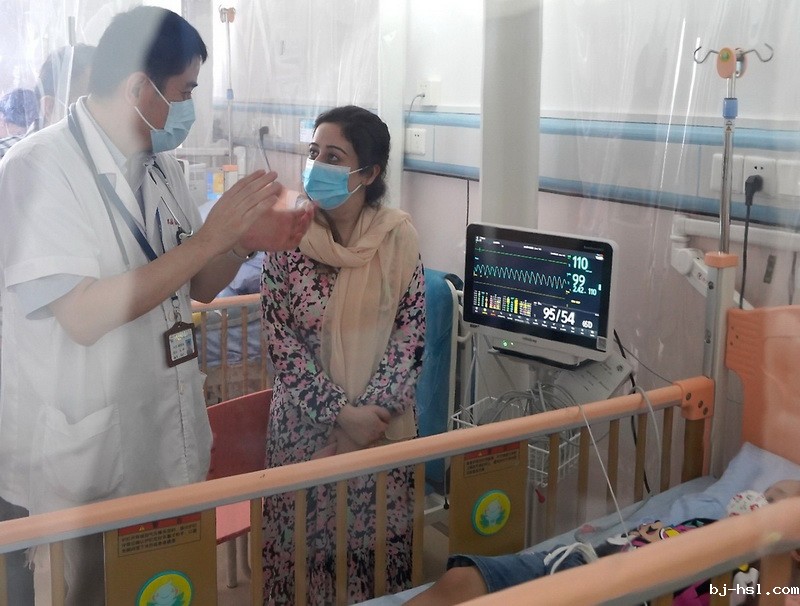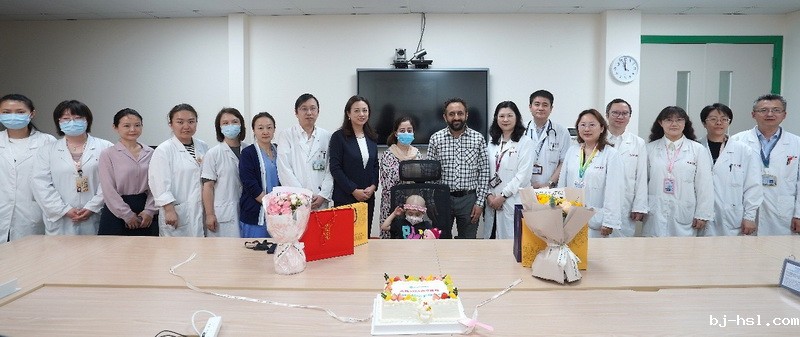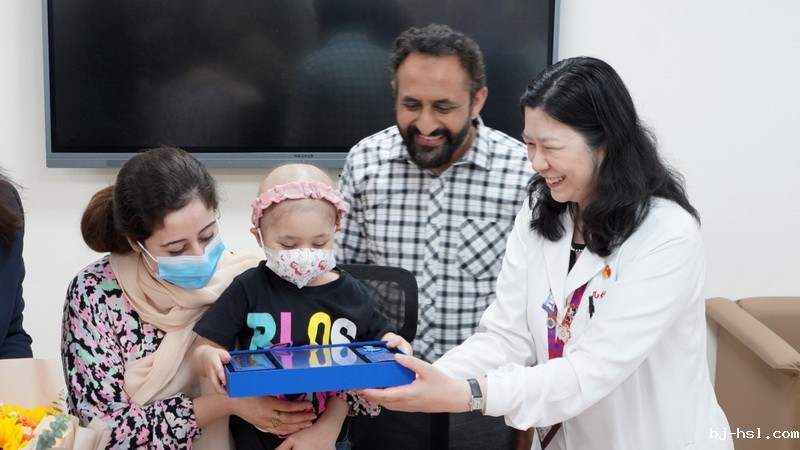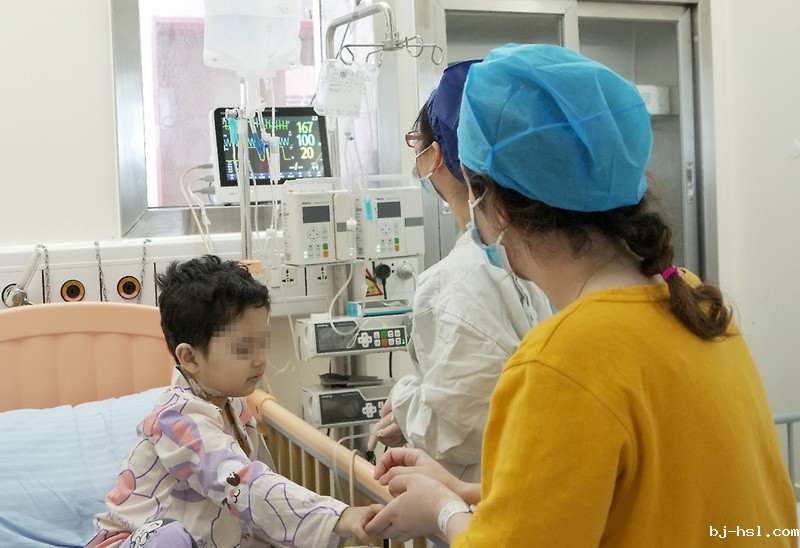A 4-year-old girl from Pakistan suffering from thalassaemia major flew to Shanghai on January 8 this year to seek medical treatment. Professor Zhai Xiaowen's team from the Department of Haematology of the National Children's Medical Centre and the Children’s Hospital of Fudan University used China's original gene editing technology to treat her, and after more than four months, she has been freed from blood transfusion dependence and returned to normal life, becoming the first foreigner to benefit from this Chinese technology.
The girl was the first foreign child to be successfully treated in the investigator-initiated clinical study of CS-101, a base-editing drug for beta-thalassaemia major, conducted by Professor Zhai Xiaowen's team in collaboration with OrthoBio in 2023.
Qian Xiaowen, the attending doctor, told the reporter that under the careful treatment of the haematology transplantation MDT team, the girl's total haemoglobin concentration had recovered to more than 100 g/L, and she had successfully achieved the goal of getting rid of her blood transfusion dependence, and the whole treatment process was very smooth. The girl's father was overwhelmed with emotion and sent flowers and greeting cards to the treatment team, thanking the Fudan Pediatrics team for their advanced technology in successfully treating his daughter's disease.
According to the introduction, thalassaemia is an autosomal recessive genetic disease and a single-gene genetic disease, and thalassaemia (severe) was included in the Second Catalogue of Rare Diseases, which was jointly formulated by six departments, including the National Health and Health Commission in 2023. As one of the most common genetic rare diseases of the blood system, thalassaemia is widely prevalent in the Mediterranean Basin, the Middle East, the tropical and subtropical regions of Africa, the Asian subcontinent and Southeast Asia, and the southern regions of Guangxi, Guangdong, Hainan, Hunan, Jiangxi, Yunnan, Hong Kong, Macao and Taiwan in China are the high prevalence areas of thalassaemia.
What the girl suffers from is beta-thalassaemia major, which requires regular blood transfusions in order to survive, otherwise she will die due to a series of complications. After her parents brought her to Shanghai from Pakistan in January this year to seek medical treatment, a multidisciplinary team (MDT) of the Department of Haematology, the Hospital for Stem Cell Transplantation of Children with Rare Diseases used China's original gene editing technology to treat her.
The treatment team collected the girl's autologous hematopoietic stem cells and used tBE (transformer Base Editor), a highly accurate transformer base editor independently developed by Shanghai University of Science and Technology (SUST), to perform precise base editing of the HBG1/2 promoter region in Aisha's autologous hematopoietic stem cells, mimicking the naturally-occurring mutations of the beneficial bases in the healthy population, to reactivate the expression of γ-pearl proteins and rebuild the hemoglobin expression. The HBG1/2 promoter region was precisely edited to mimic the beneficial base mutations that naturally exist in healthy people, reactivate the expression of γ-bead protein, and rebuild the oxygen-carrying function of haemoglobin.
Professor Zhai Xiaowen, Vice President of Children’s Hospital of Fudan University and leader of the Department of Hematology, said that the girl's successful treatment will help to rapidly advance the clinical translation of China's original gene editing technology, and bring the hope of ‘once-treated, lifelong cured’ to patients suffering from serious diseases around the world.
The hospital set up a MDT team for stem cell transplantation of rare diseases in children in 2016, integrating clinical, medical technology and functional experts related to the diagnosis and treatment of rare diseases, focusing on the diagnosis and treatment of stem cell transplantation of difficult-to-treat rare diseases in children. In the OrthoBio CS-101 clinical study initiated in 2023, the first patient with severe β-degeneration in Fudan Children’s Hospital who received base editing treatment has been free from blood transfusion dependence for nearly 18 months, and the disease has been cured. In March this year, at the 51st Annual Meeting of the European Society for Blood and Marrow Transplantation (EBMT 2025) held in Florence, Italy, Professor Zhai Xiaowen's team appeared at the meeting with five research results, of which Dr Zifeng Li made an oral report on behalf of the team, and the original gene editing technology from China gained wide attention from international scholars.



